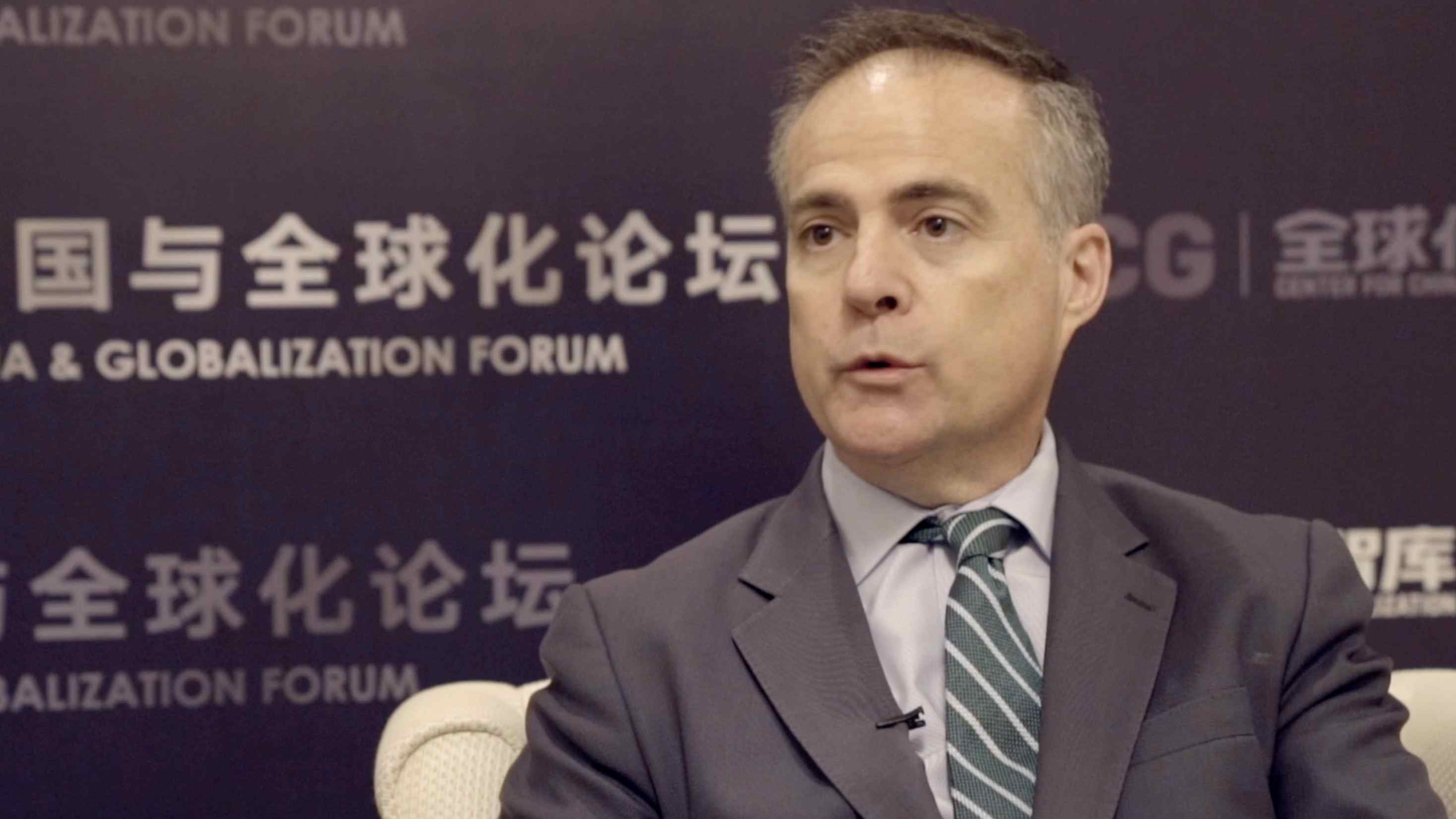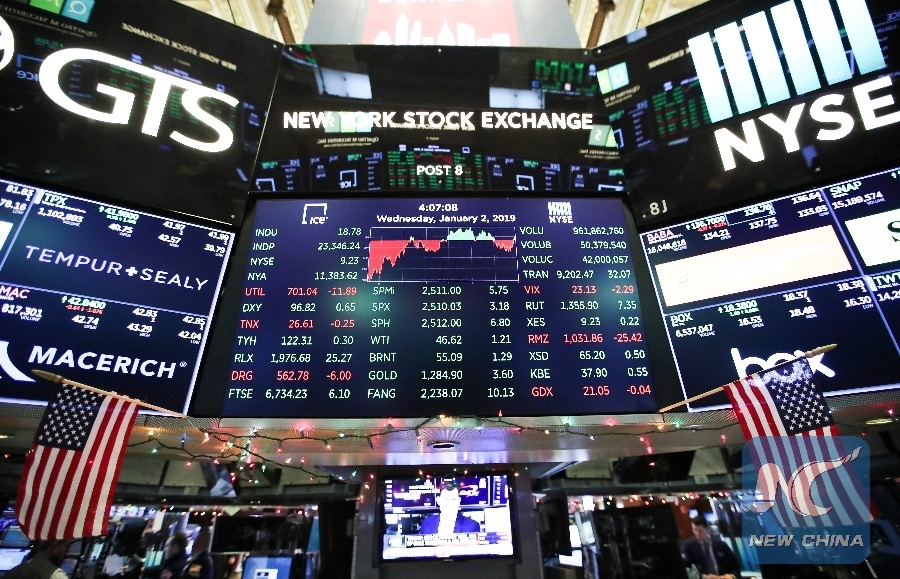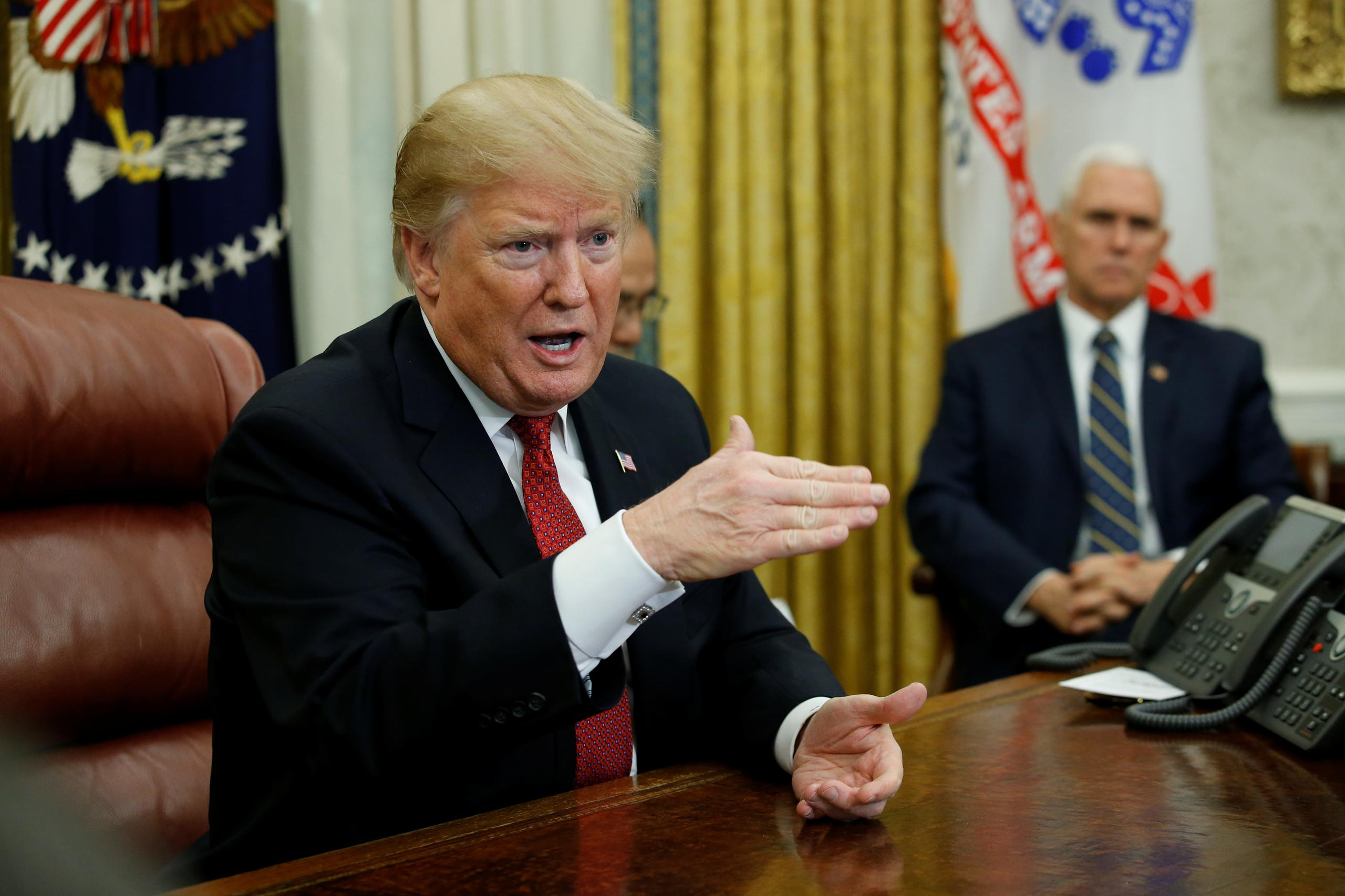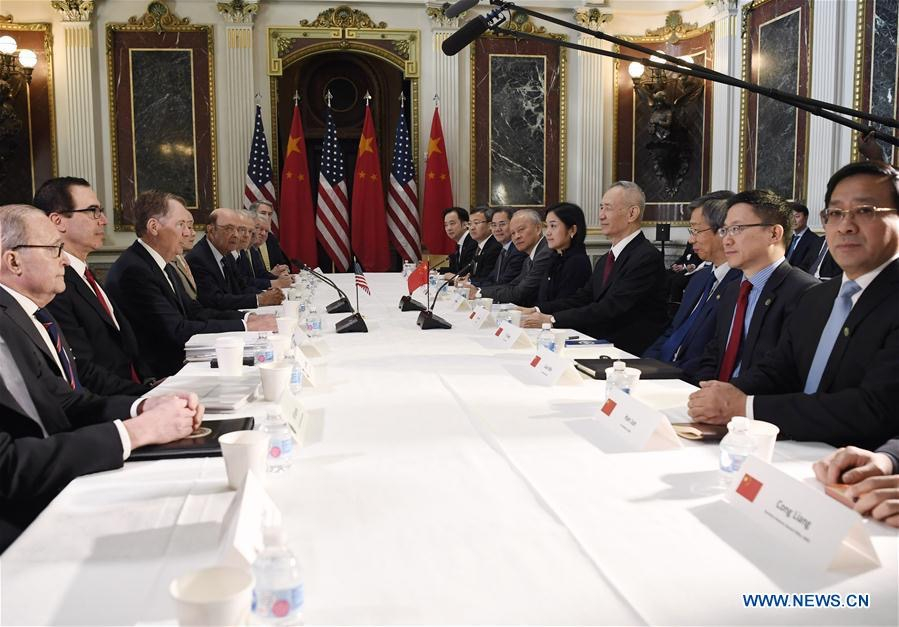03:52

The protracted trade conflict between the world's largest two economies is nearing the final lap, after rounds of bitter talks. "I think we're hopeful that we're getting close to the final round of concluding issues," U.S. Secretary of the Treasury Steven Mnuchin said on the sidelines of the International Monetary Fund and World Bank spring meetings on Saturday.
Such optimism buoyed the global stock market and lifted business sentiment. But there are concerns that a trade deal could hurt China's other partners and doubts about whether a deal can truly abate the rivalry between an established power and a rising one.
CGTN's Wang Xiaonan talked to Daniel Ikenson, Cato's Herbert A. Stiefel Center for Trade Policy Studies, at the annual forum of the Center of China and Globalization in Beijing, to explore how the trade conflict took shape, how Trump veered from his predecessors in embracing globalization and what's in store for future China-U.S. ties.
CGTN: It's reported that China and the U.S. have agreed to open trade enforcement offices to deal with the prolonged trade entanglement after recent meetings in Beijing and Washington. Is a trade deal close?
Ikenson: Having access to resolving the underlying problems that gave rise to the trade war is a good idea. We are glad to hear that the offices will be built in both Beijing and Washington so that issues can be resolved on both sides. The two largest economies in the world are always going to generate some frictions but it's absolutely crucial that we figure out ways to address the sources of tensions that have created the biggest problems.
So there's always room to dispute and for dispute settlement as well. But addressing these big problems now is essential to removing the tariffs and getting the relationship back on track.

Electronic screens with trading data are seen at the New York Stock Exchange in New York, January 2, 2019. /Xinhua Photo
Electronic screens with trading data are seen at the New York Stock Exchange in New York, January 2, 2019. /Xinhua Photo
CGTN: What do you think of U.S. President Donald Trump's trade policy? He has brought his withdrawal doctrine to almost every realm, and trade is no exception. He abandoned the Trans-Pacific Partnership (TPP) – his predecessor Barack Obama's signature trade pact. What do you think of his leaning toward protectionism?
Ikenson: That was a crucial mistake. President Trump represented a major departure from 85 years of U.S. trade policy continuity. All presidents before him going back to Franklin Roosevelt in the 1930s thought trade as a win-win proposition, as a mechanism that could foster good relations between nations and growing economies.
They support the institutions of trade; they like the rules. Occasionally they dabble into protectionism. But President Trump sees the world very differently – he sees trade as a zero-sum game where Team America against Team China, or Team America against Team Europe or Team Mexico.
That's a wrong way to look at trade. The TPP was a very good agreement in the sense that the WTO liberalization process – the consensus-based model – has broken down. The TPP is a different model. It's a critical mass; 40 percent of the global economy was represented in the TPP. It was a high-standard agreement. But I think President Trump, by bailing out of the TPP, dug a very big hole for the U.S. which his cabinet is still trying to fill.
CGTN: But one reason that Trump launched the trade war was to protect white blue-collar workers, especially in the Rust Belt, who lost their jobs amid the manufacturing hollowing-out era starting from the late 1990s, which, however, remains a pending issue over the years. Should the U.S. address this conundrum or just let it be?
Ikenson: We've come to the conclusion that trade globalization has made the world richer, but at the same time, the benefits of globalization have excluded a smaller segment of society. There's a perception that the working class or middle class in the Rust Belt has been left behind. I don't blame trade for that. In fact, it's technology; it's productivity gains that accounted for much more of the job churn in the U.S. and in China and everywhere in the world.
Trade gets blamed for these things because it's easier because foreign companies, foreigners don't have a vote in our Congress. That message sort of resonates with voters. But I think protectionism is felt more accurately by the very people that Trump is claiming to help. When we impose duties on steel and aluminum, we are making it harder for downstream industries to purchase the steel and aluminum to make products to hire people and to create values.
Protectionism is a failed approach, and the president is learning this through the hard way. Politically, he may be insulated simply because the U.S. economy has been doing very well for the past few years because of the fiscal and monetary stimulus. But we are really feeling the effects of the trade war.

U.S. President Donald Trump speaks to Chinese Vice Premier Liu He as Vice President Mike Pence looks on during a meeting in the Oval Office of the White House in Washington D.C., January 31, 2019. /Reuters
U.S. President Donald Trump speaks to Chinese Vice Premier Liu He as Vice President Mike Pence looks on during a meeting in the Oval Office of the White House in Washington D.C., January 31, 2019. /Reuters
CGTN: It seems that a tech war is looming out of the protracted trade row, in particular, against the backdrop of the fourth industrial revolution driven by chips and algorithms. Will the tech competition become a new normal?
Ikenson: The United States is the technologically preeminent economy right now. China has set its goal on becoming the technologically preeminent economy. Technology has a lot of first-mover advantages. If you're the first in a particular space, first-mover advantages [can apply] economically, [and from a] security perspective and a military perspective.
And I think that fact is alarming to security, intelligence and military experts. The U.S. doesn't want to see its position [deteriorate], and China certainly wants to pursue that position. I think it's going to take a great deal of imagination to figure out how we can operate together without trying to cripple each other's technology ambitions.
I don't think this can be addressed through a WTO agreement. Maybe there needs to be some sort of a treaty that commits the United States and China to behave a certain way when it comes to developing these new technologies. To me, this is the elephant in the room. This is the biggest issue in the relationship, and it's going to take collaboration between U.S. think tanks and Chinese think tanks and think tanks from other countries and receptive governments from both China and the U.S. to resolve or mitigate this issue.
CGTN: So we need a bilateral mechanism or treaty to govern both the trade and tech competition and cooperation?
Ikenson: Something like that. So I think it's important for the globe to have multilateral trade rules that work well, and right now that system is being sort of rocked because of U.S. concerns about China primarily. There are some legitimate issues that cannot be dealt with within the WTO, so maybe the U.S. and China should have a mechanism outside of the WTO to deal with these issues. And in fact, as we are observing the negotiations to end the trade war, the U.S. and China are coming up with some creative ideas, it looks like, on how to deal with certain issues. So maybe that channel, that mechanism, will work to address the concerns about technology as well.

Chinese Vice Premier Liu He, who also comes as the special envoy of Chinese President Xi Jinping, U.S. Trade Representative Robert Lighthizer and U.S. Secretary of the Treasury Steven Mnuchin co-chair the formal opening of a fresh round of high-level economic and trade talks at the Eisenhower Executive Office Building of the White House in Washington D.C., February 21, 2019. /Xinhua Photo
Chinese Vice Premier Liu He, who also comes as the special envoy of Chinese President Xi Jinping, U.S. Trade Representative Robert Lighthizer and U.S. Secretary of the Treasury Steven Mnuchin co-chair the formal opening of a fresh round of high-level economic and trade talks at the Eisenhower Executive Office Building of the White House in Washington D.C., February 21, 2019. /Xinhua Photo
CGTN: Will the engagement policy that has refined China-U.S. relations for the past four decades fade away?
Ikenson: I think it will be revised to some extent. The U.S. relationship with China has been predicated on China as a poorer country, as a country that would be a manufacturing platform for the world. That was a sort of a win-win from America's perspective. Of course, China has wanted to move its way up the value chain and be a big economy and be a technology-driven economy as well.
That makes the United States a little bit more defensive, a little bit warier and a little bit more interested in making sure that there are rules in place that they hadn't thought about in the past. So I think the relationship will change in the sense that we are now strategic competitors, if not rivals. Some would even say that if we don't get this under control, we would even be adversaries.
I think we're still at the point where we can address these issues and come up with some way to peacefully coexist and prosperously coexist, but that's going to take some real effort to sit down at the table and come up with a new set of rules.
Washington needs efforts to recognize that China's well-being and growth is in America's interest, and America's growth is in China's interest. Americans are the incumbent global hegemon, and China is the rising hegemon. And the U.S. has been distracted for 20 years with wars in the Middle East. It's pivoting and recognizing that "hey, we need to do something, looks like China's challenging us." And there's a lot of fear that everything that China does to take a step forward is perceived as coming at our expense.
There're some elements in American society who view the relationship that way. A large segment of the American population doesn't view it that way; they see it more as a win-win. That portion of the population needs to be re-empowered in the United States, and in China, too.
Reporters: Zeng Ziyi, Wang Xiaonan
Videographer and video editor: Zeng Ziyi





